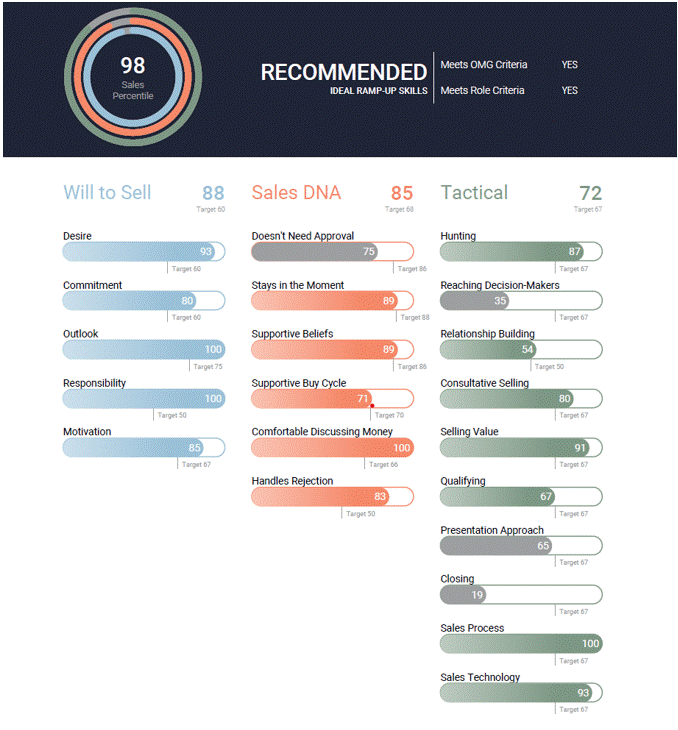What is a Great Sales Leader - most have not seen, heard or experienced one.
/Here are some examples of what I come across that has led me to this conclusion.
Conversation with Sales Manager A
“My sales person working reomotely will not sell our consumable range – they just focus on our high end engineering solutions. – I want you to train them”
“Why do you think they are not selling the consumable range?” I asked
“I don’t know, I have instructed him to do so.”
“Is he achieving his sales revenue targets?” I asked
“Yes” he replied
“So what is the problem – as far as the sales person is concerned he is doing his job for the company. Were the targets specified to include the behaviour you were seeking?” I asked
“No. I have had a performance review and still not change.”
“Train them on what please?” I asked. (I knew what/who was the problem here)
Conversation with Sales Manager B
“I want you to train my team – there are veterans and newbies” asked Sales Manager
“What would you like to change within your team?” I asked
Mmm both these examples show a lack of sales leadership.
So what should a sales leader do to create a high performance team?
So what makes a Great Sales Leader
Firstly what are they supposed to focus on – how will we make our targets? What is the sales strategy?
Once this is established the sales leader needs to help their salespeople understand the company’s sales strategy, and to align their personal strategy with it so that they feel ownership and responsibility to it. These nine open-ended questions can help.
What excites you about the sales strategy and why?
What is not that exciting and why?
What will success look like for you and the company?
What is the main outcome you would like to achieve?
How will you know you’ve reached that outcome?
What will need to happen before…?
What stands in the way of…?
Which clients will provide the bulk of your sales and what will you need to do to ensure this happens?
What is your win/loss ratio?
What is the average order value
Considering the gap between what your current clients will bring in and your sales target, what new clients will you need to prospect?
So if you take your average order value. Your win/loss ratio – how many orders will you need and then how many new clients will you need
Now we know the focus, we now need to focus on the activities to get there
Here are some questions to assist
So you need this many new clients, what will you need to do to get to them?
How many calls will you need to make to lock in a meeting – virtual or f2f?
Is there any other activities you could do to create opportunities to meet the ideal client?
Which activity do you find the easiest and the hardest?
Which activity will yield the best outcomes?
Now lets get back to the clients that will deliver a certain amount of revenue - key accounts. Here are some questions for sales leaders to ask.
What do you need to focus on to ensure the existing revenue continues?
What do you need to do to ensure this happens?
What others products/services could we position with them?
What is need to do this?
Who else do you need to have a relationship with?
How can you reach the people you want/need to talk to?
Who would you really like to have on your side?
How can you get them on your side?
What type of relationship will you want and what is required to obtain this?
Are you the trusted advisor? How would you know this?
What do you need to do to be the trusted advisor?
Why should they even care about this?
What would cause them to do nothing?
How strong is the incumbent?
What are the red flags?
Developing the Sales Team
So we have established the strategy and plan, we have discussed the leading indicators of activities for success now lets improve their effectiveness as the activities. Yes there is a need to train and mentor. Most importantly sustainable change comes form coaching.
Life for a sales leader is a lot easier if they new exactly what the mind and skill set gaps were – this is where a sales team evaluation comes into play – an objective evaluation.
We utilised a specifically and scientifically made product for this – check this out. Why fumble around when you can have specific data on what your sales people need.
Here are some open-ended questions for skills and attitude coaching
Building skills and improving team attitudes is an important aspect of sales leadership coaching. These questions can help.
Would your clients pay to access your knowledge? Why or why not? And what knowledge is important to them?
What value you do you bring to a prospect’s business?
What does the conversation sound like?
What skills do you need in order to achieve…?
What knowledge do you need in order to achieve…?
What will make you go the extra mile to achieve…?
What could you be doing differently to be more effective?
What would you like to do more or less of? Why?
Are you missing any skills or resources in order to move toward your next goal?
How did your competition outsmart you in the last deal you lost? How can you prevent that this time?
When coaching salespeople, sometimes problem areas can be addressed by understanding what levels of change would improve performance, and then asking open-ended questions about that level. Here are some examples of questions that can help salespeople identify their challenges.
Could there be anything getting in the way of you doing what you need to improve to be more effective?
Is there anything missing in your work environment that would help you perform better?
What aspects of the work environment are holding you back?
What actions can you take to improve this part of your performance?
Are there actions that you should be engaging in more often?
What are you doing that may be holding you back?
What do you need to believe about yourself in order to make progress toward your goals?
Were you told things in your childhood that you still believe that perhaps aren’t true?
What harmful beliefs about yourself may be holding you back?
Accountability
Let’s just say you have the team focussed on the right things – strategy and plan. Let’s just say they know what activities they need to do to obtain the results. Add your mentoring and coaching to improve their effectiveness at those activities. So what now? We need to measure and monitor.
Part of a sales leadership focus needs to be is holding the team accountable.
Whilst we can look at the standard sales kpi’s here is a thought. Why not get them involved in creating their own KPi’s. If there are part of them then there is a greater possibility they have bought into them and will hold themselves accountable – which is a even better experience for all.
Ask them these questions: -
What would you like to be accountable for and why?
How will those kpis get the results?
What should happen if those kpi’s don’t deliver the results?
What should happen if you do not meet your kpi’s?
Pipeline Management
Pipeline coaching helps salespeople become clear about the actual state of their pipeline, and develop strategies for improving it.
Here are some questions that can help.
Are you happy with its size and health?
What does the health of a pipeline mean to you?
How would you like it to be different?
Are there any opportunities in your pipeline that aren’t as promising as you originally thought?
What has to happen to put more opportunities in the pipeline?
What are you assuming here? Could another assumption be true?
What happens if this large deal goes silent?
When should we meet to look at your progress on this?
If we look at your win rate, deal size, and sales cycle, what can you do to improve?
Which stage of the pipeline is the hardest one to move through?
There is so much more, this is a great start.














